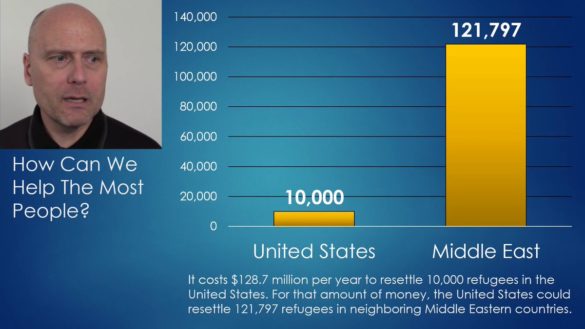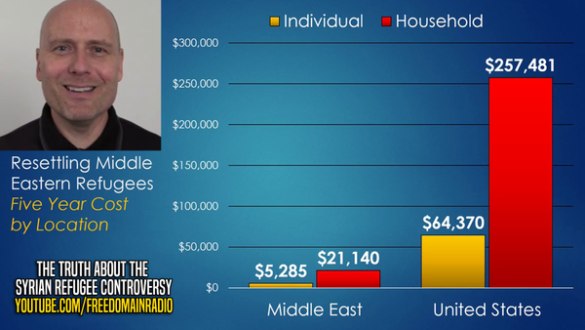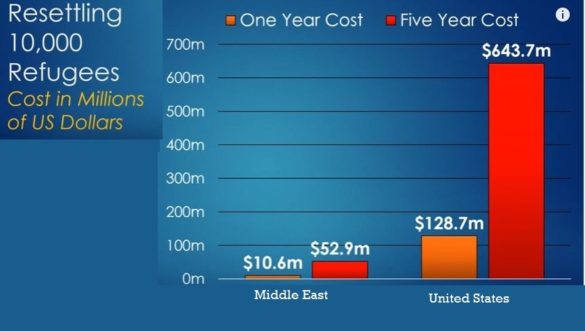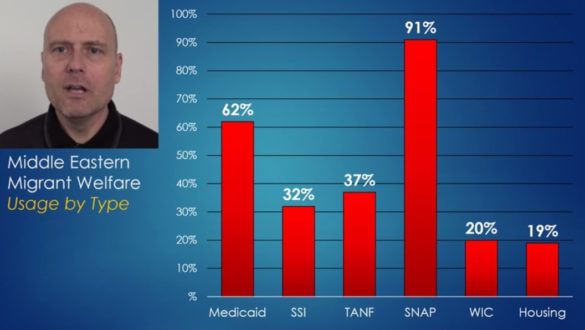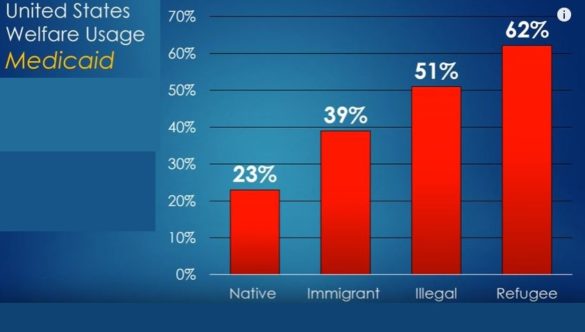Are you familiar with the Parable of the Good Samaritan? You can find it in Luke 10:25-37 and it goes something like this:
A certain insufficiently democratic Middle Eastern country sat upon strategically important oil pipelines, and fell afoul of some Cucktians, who stripped him of his stable government, destroyed his infrastructure, and departed, leaving him to be overrun by Jihadists. Now by chance a certain Saudi Arabian came down that road. And when he saw him, he passed by on the other side. Likewise an Israeli, when he arrived at the place, came and looked, and passed by on the other side. But a certain Cucktian, as he virtue signaled, came to where he was. And when he saw him, he felt guilty. So he went to him and spent trillions of dollars rebuilding his infrastructure, while launching drone strikes on the Jihadists and civilian collaterals; and he set up a refugee program, imported millions of Muslims to America, and resettled them in the working-class neighborhoods far away down the road. On the next day, when he departed, he took money from Federal welfare programs, gave it to the refugees, and said to them, ‘Take this; and whatever more you spend, when I come again, I will raise taxes on the working and middle classes to support you.’
On second thought, the Parable of the Good Cucktian doesn’t actually match the Parable of the Good Samaritan very well at all, despite what the men masquerading as modern church leaders may say. Let’s go over a few of the major differences.
1) Unlike our Cucktian, the Samaritan was an uninvolved third party. He wasn’t one of the bandits. For a decade and a half, the exact same Cucktians who are now pitching a hissy fit over a temporary pause in the flood of unassimilable refugees arriving on our shores have been wholeheartedly supporting a foreign policy that created those very refugees, killed hundreds of thousands more, brought chaos to an entire region, and resulted in the systematic destruction of Middle Eastern Christianity. And they have learned absolutely nothing from those past experiences. Throughout the entire 2016 presidential campaign season they backed one warmongering candidate after another, desperately trying to find someone who would promise to kill more Middle Easterners in the name of democracy and who could defeat Donald Trump. Ultimately defeated at the primary polls by the unenlightened, non-interventionalist, heartland rubes whom they looked down upon from their New York Times ivory towers, these Cucktians then retreated to sullen silence or even backed a third party candidate who, amazingly, managed to be even more bloodthirsty than Lindsey Graham or John McCain – in the name of peace and love, of course. And they still presume to act as if they have any moral authority whatsoever left to lecture the rest of us. No, the good Cucktian stopped being good when his hand held the knife that stabbed the traveler.
If anyone in the good Cucktian scenario truly earns the title of “Good Samaritan,” it would be Russia. A largely uninvolved third party who is spending its blood and treasure to defend Syrian Christians, support Syria’s rightful government, and kill Jihadists. Fittingly, Russia is a country Cucktians would also love to bomb, in the name of Christian compassion.
2) The Good Samaritan took the wounded traveler to an inn to recover. He didn’t go to the traveler’s country, round up his entire tribe, and bring them all back to permanently stay in the Samaritan’s hometown. Cucktians love the word “refugee,” because it implies a temporary situation. – people fleeing danger who will return home once the danger has passed – but we know better. We know that once these people are here and hooked on the welfare trough, they will never leave. We’re not talking about refugees; we’re talking about permanent immigrants. The act of the Good Samaritan was an act of private charity; he did not demand his town saddle the burden of hosting the traveler’s entire extended family indefinitely. The Cucktian takes the opposite approach, minimizing the ill effects of refugee immigration upon himself in his gated neighborhood and imposing it upon others, while monopolizing all the credit and applause for dropping waves of hostile unassimilable foreigners into his countrymen’s backyards.
3) The Good Samaritan’s solution maximized efficiency and effectiveness, while the good Cucktian’s solution maximizes cost and virtue signaling. The Samaritan didn’t take the traveler to the most luxurious palace he could find far from his path, but took the traveler to a nearby affordable inn. We know this because the Samaritan said he would be returning that way, and because he only had to give the innkeeper two days’ wages to cover the bill. On the other hand, importing refugees into the West is the most expensive way possible to help them, but it sure does give great opportunities for photo ops and warm fuzzy feelings. The cost comparison of helping refugees over there versus helping them over here is explained superbly by this Stefan Molyneux video. Below are some of the charts from that video:
Since we live in a world of limited resources, helping people the most efficient way means that you can help more people. Of course, helping refugees over there isn’t nearly as sexy, doesn’t give you as many opportunities to virtue signal on social media, won’t enlarge the federal grants to your “non-profit” refugee resettlement organization, and doesn’t increase the number of future left-wing voters. Which is probably why it isn’t the preferred Cucktian solution.
Ironically enough, it is Trump, the villain of the Cucktian narrative, who has made the greatest stride towards implementing this efficient and effective solution. After only a week on the job, and despite years of Saudi Arabian stalling, Trump got Saudi Arabia to finally agree to help set up safe zones in Syria and Yemen for refugees on Monday, likely using the threat of including Saudi Arabia on the travel ban list if they didn’t play ball. At the end of the day, despite all of his flaws, so far Trump’s policies have been far closer to the biblical model than the ones proposed by the seminaried snakes ever were. We are under no biblical obligation to collectively destroy our own nation on behalf of foreigners – quite the opposite (Matthew 15:26) – and the Christian charity we do offer should be modeled after the Good Samaritan, not the Good Cucktian.
| Tweet |
|
|
|

